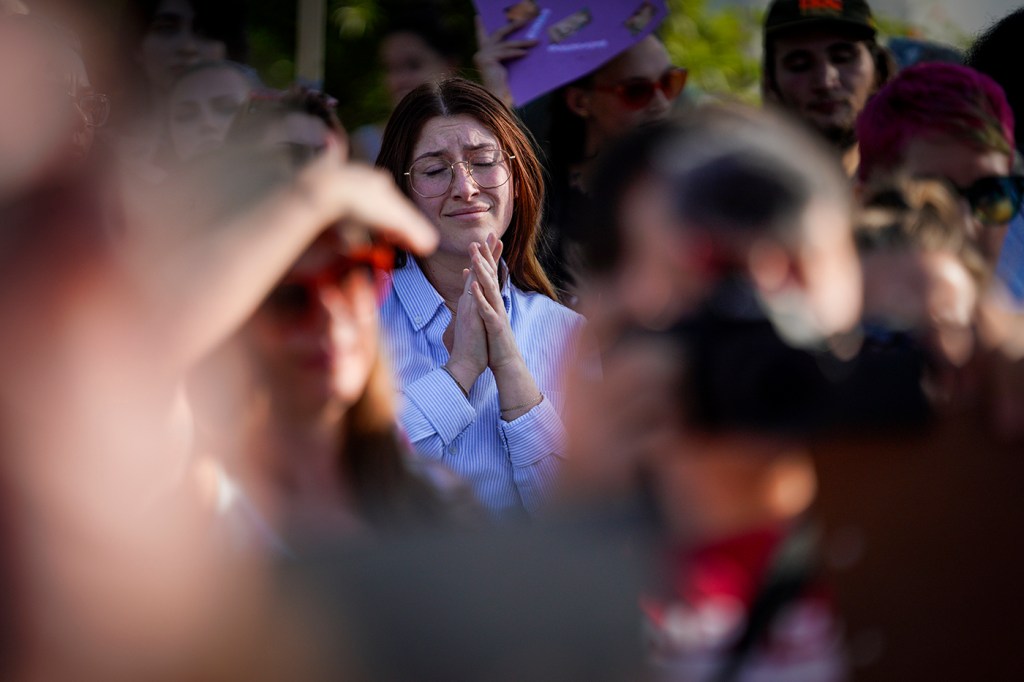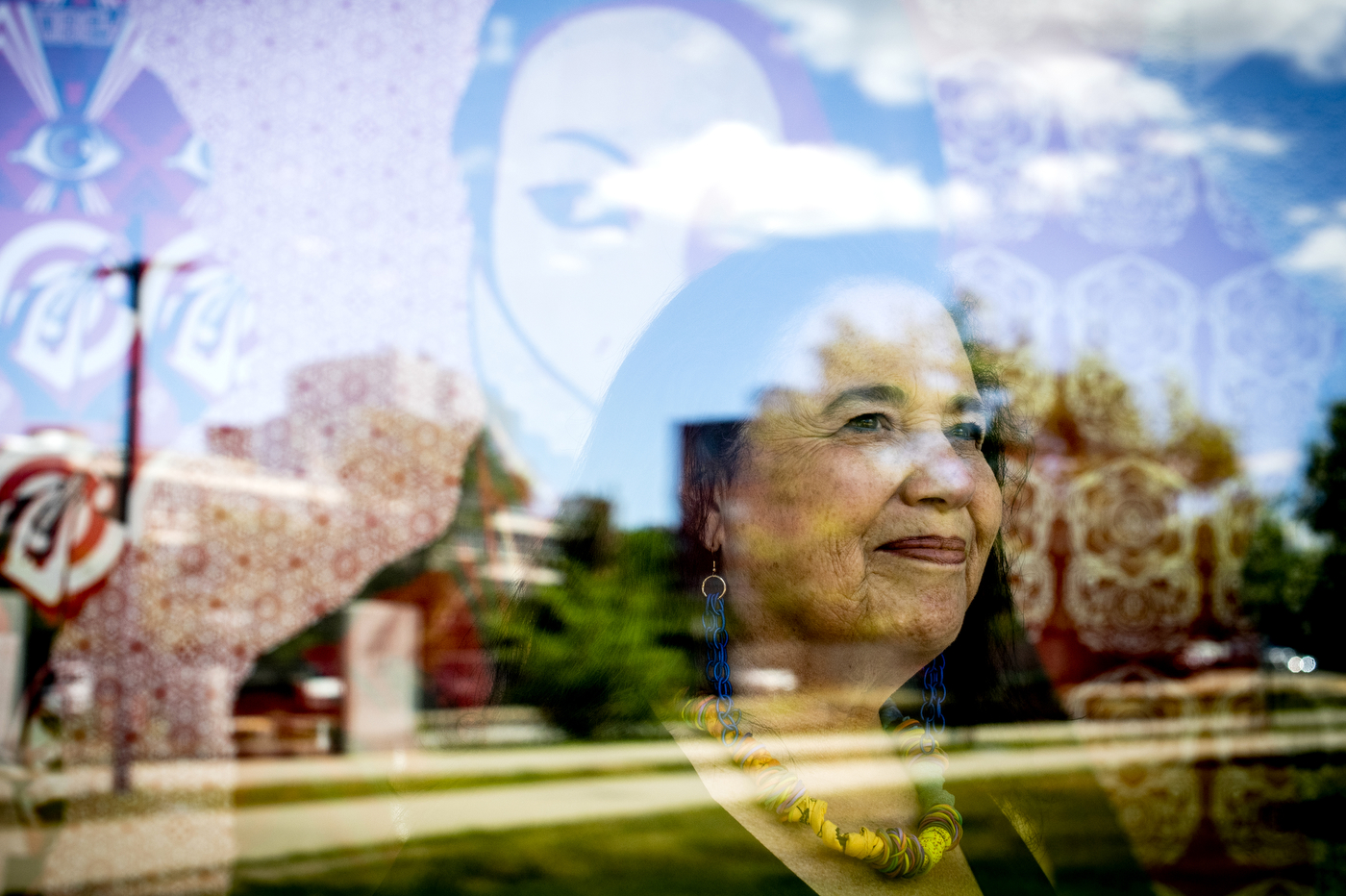‘Whose God wins?’ Florida lawsuit exposes Supreme Court’s religious hypocrisy, Northeastern professors say

In the wake of the U.S. Supreme Court’s decision to overturn Roe v. Wade last month, nearly half of all U.S. states have responded by passing laws or attempting to pass laws that ban or severely restrict abortion.
At the same time, those bans are being challenged in court, creating a murky—and tumultuous—legal landscape as pro-choice activists scramble to stave off anti-abortion legislation.
One of those challenges has come from a synagogue in Boynton Beach, Florida.
In Florida, a ban on abortions after 15 weeks was blocked on June 30 before being reinstated five days later. But in a lawsuit filed shortly before the Dobbs decision, Congregation L’Dor Va-Dor aims to reverse that decision once again by contesting that the Florida abortion law violates religious liberty by criminalizing abortion, which is permitted in Jewish law.

In theory, the lawsuit could have a far-reaching impact considering the current Supreme Court’s prioritization of religious liberty. But two Northeastern professors say that while the lawsuit’s allegations have a strong basis in Jewish law, there is little hope that the Supreme Court will be neutral or ideologically consistent when it comes to non-Christian groups.
In the lawsuit, the congregation alleges that the Florida abortion ban violates the Florida Constitution, which protects the freedom to exercise religion. By banning abortion, the lawsuit says, the Florida law makes it impossible for members of the congregation to legally practice.
“Plaintiff and its members, congregants and supporters rely on Jewish law and understanding regarding abortion, which differs from the requirements of the Act,” the lawsuit reads. “Thus, if the members, congregants and supporters of Plaintiff practice their religion regarding decisions related to abortion, they will be penalized by the state in violation of the Constitution.”
Moreover, the lawsuit reads, “By denying women their dignity, autonomy, religious freedom and their fundamental rights, the Act denigrates women.”
The lawsuit is correct to claim that abortion is a part of Jewish law, says Lori Lefkovitz, director of the Jewish Studies program at Northeastern. “However varied Judaism is around the world and over time, I think there are certain bedrock principles, and one is the value of human life,” she says. Even if it means violating other laws such as observing the Sabbath, in Judaism “human life trumps everything.”

In the case of pregnancy, “It’s the mother’s life that matters,” Lefkovitz says. This principle, she says, comes from the Book of Exodus, in which a pregnant woman is hit and she miscarries; the criminal is only charged for damages, not for murder. “All of Jewish case law has developed from that principle,” Lefkovitz says.
In regards to the fetus, while it is valued, “in Judaism, life starts at birth,” she says. Moreover, “the Talmud references a pregnancy in the first 40 days as being ‘mere water.’”
This deep-seated belief is one reason why a 2014 Pew Research Center survey found that 83% of American Jews agree on liberal abortion laws, Lefkovitz says.
But that perspective isn’t respected in American law, Lefkovitz says. The abortion ban in Florida, for one, “actually interferes with the observance of Jewish law, because it is mandatory to have an abortion if the mother’s life is threatened.”
Moreover, she says, Christian values take precedence in other areas of U.S. law. Lefkovitz cites a 2019 Supreme Court decision in which the court ruled, 7-2, that a World War I memorial cross in Maryland honoring 49 residents could remain standing. While the majority of the justices ruled that the monument did not violate the Constitution, Justice Ruth Bader Ginsburg disagreed, stating that “the principal symbol of Christianity around the world should not loom over public thoroughfares, suggesting official recognition of that religion’s paramountcy.”
This case demonstrates that “there’s a presumption that Christian values are American values,” Lefkovitz says.
Wendy Parmet, Matthews Distinguished University Professor of Law and co-director of Northeastern’s Center for Health Policy and Law, agrees that the high court’s Christian bias is “deeply implicit.” While in previous decades, many of the Supreme Court’s decisions on religious liberty concerned minority faiths, “Since Roberts became chief justice, almost all of the decisions are issued on behalf of Catholics or Evangelicals,” she says.
What’s more, in last week’s ruling wherein the court aligned with a public school football coach who was fired for praying on the field, Parmet says the message to non-Christians was, “Who cares if you’re uncomfortable? This is a Christian country.” In one case that involved non-Christians, the court voted to uphold a travel ban on Muslim-majority nations in Trump v. Hawaii in 2018. “Somehow the rights of Muslims did not concern the court,” she says.
This duplicity means that despite ruling in favor of religious liberty in certain instances, such as cases involving faith-based objections to vaccinations or to prescribing Plan B, it would be a mistake to hope that the Florida case will force courts to apply this logic to all religions, Parmet says.
Still, “it’s interesting to push it” with the Florida lawsuit, she says.
“It exposes the muddle the court is getting itself in. But I wouldn’t hold my breath,” she says. “I think it’s naive to assume that the court is actually neutral, and that the court will be logically consistent. This court has not been.”
She goes farther, arguing that the current court’s vision of the Constitution doesn’t match what the framers intended. “They have a certain perspective about the Constitution and the role of Christianity in it which probably would have surprised most of the framers.”
In doing so, they’ve denied a pluralistic view of American society.
“I think they believe that their God is the God, is the God of the Constitution.”
For media inquiries, please contact Marirose Sartoretto at m.sartoretto@northeastern.edu or 617-373-5718.





